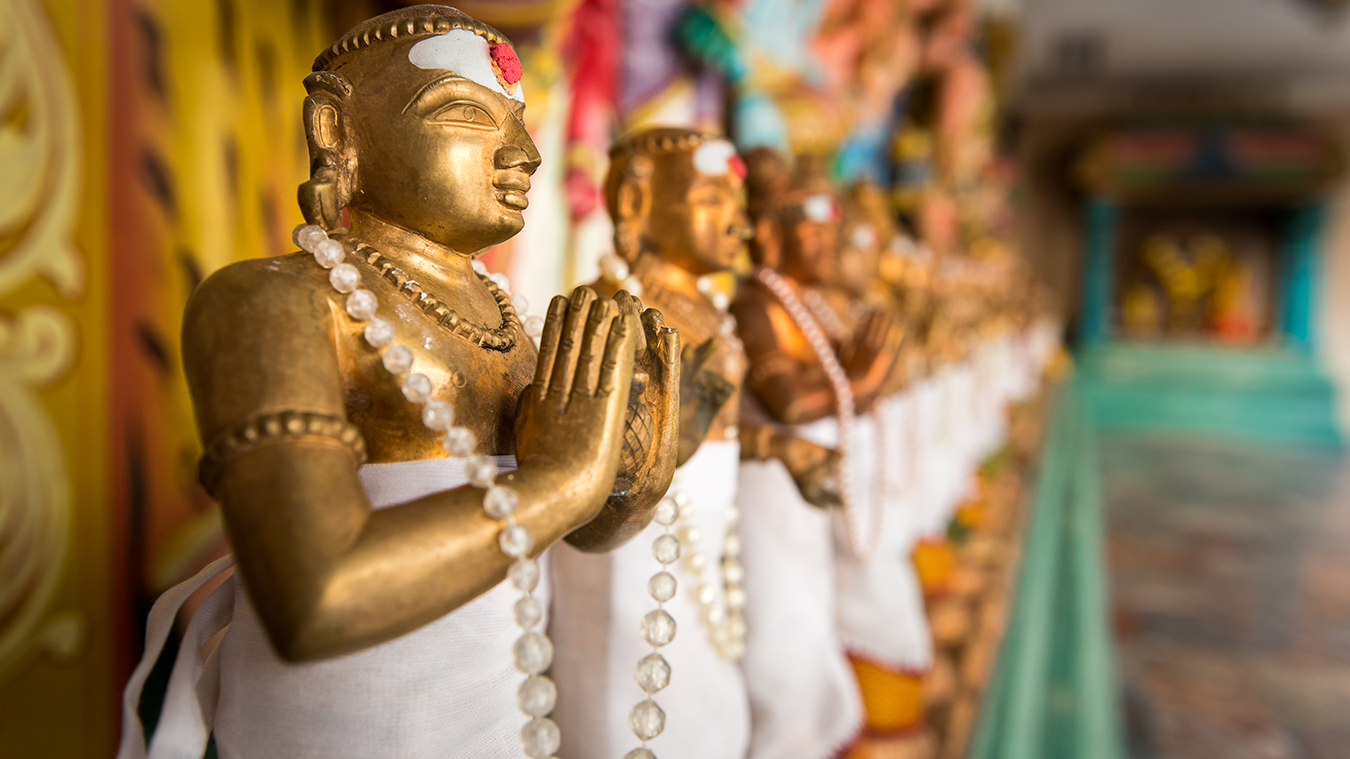
Idolatry, the worship of something or someone as a god, is a practice that dates back to the dawn of human civilization. The urge to revere gods that can be seen, touched, and manipulated is still alive and well in the modern world. This series explores expressions of idolatry in contemporary cultures around the globe to inspire prayer and engagement with the gospel.
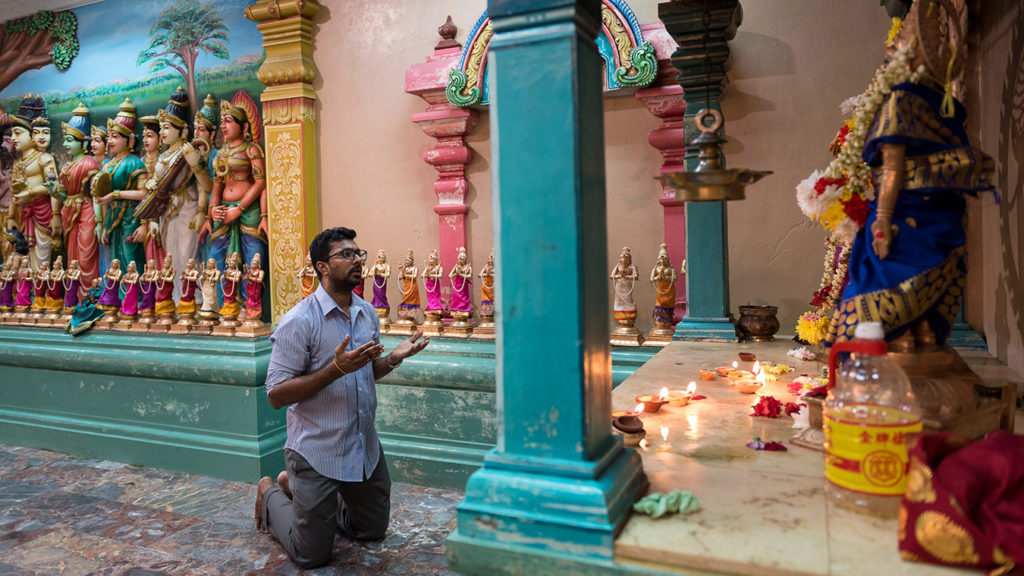
During the full moon in either January or February, Indian Malaysians celebrate the Hindu festival of Thaipusam. The festival commemorates Lord Murugan, the Hindu god of war. In Kuala Lumpur, the capital of Malaysia, the festival garners worldwide media attention for the extreme devotion some worshippers show by waging a “war” on their bodies.
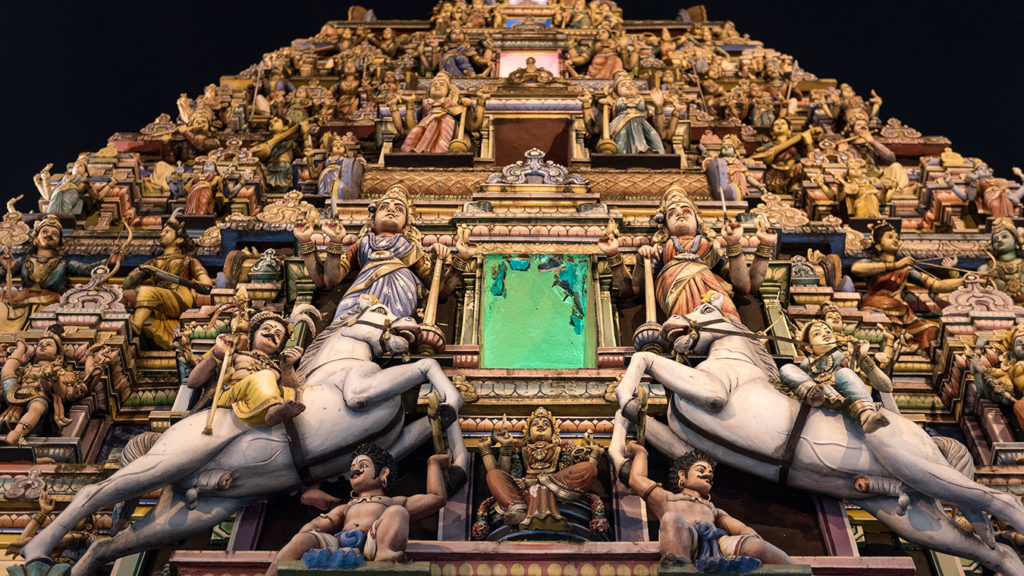
Hindus worship a pantheon filled with thousands of gods and goddesses, but the most revered are Brahma, Vishnu, and Shiva. Lord Murugan is the son of the god Shiva and the goddess Parvathi.
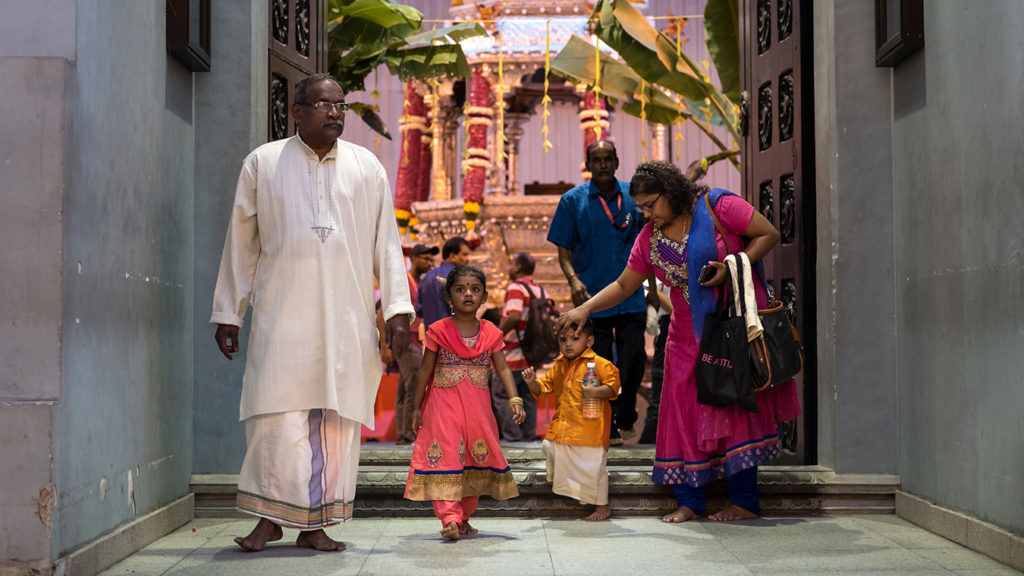
In the early hours of the morning, worshipers exit the Sri Mahamariamman Temple—Kuala Lumpur’s oldest Hindu temple—prepared for the long journey ahead. The pilgrimage route is a fifteen-and-a-half-mile trek from downtown to the Batu Caves. The most devoted worshipers walk barefoot.
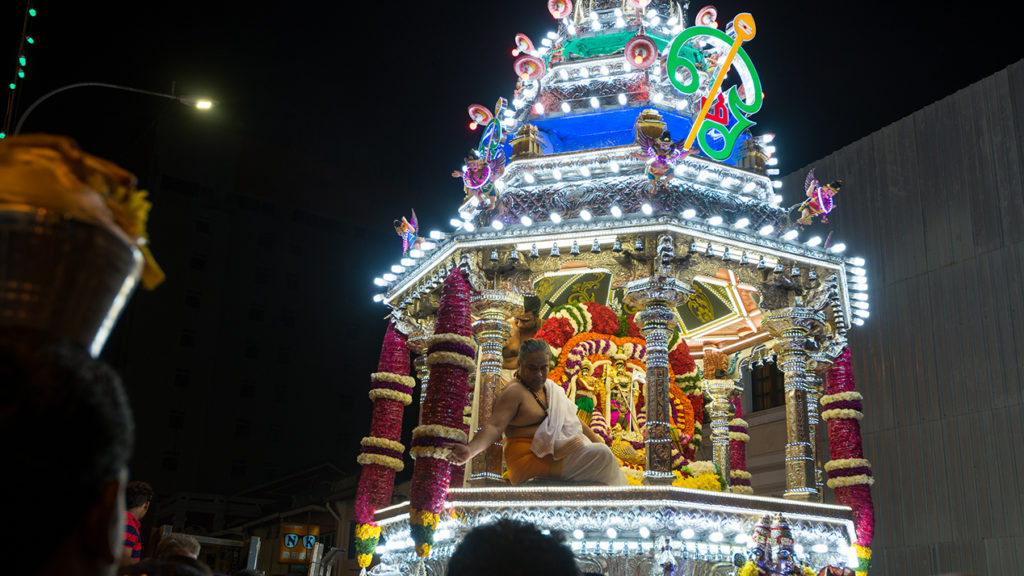
Men, women, and children follow a chariot carrying a statue of Lord Murugan, who is also known by the names Skanda, Kumara, and Subrahmanya. He is attributed with three divine eternal functions: creation, protection, and destruction.
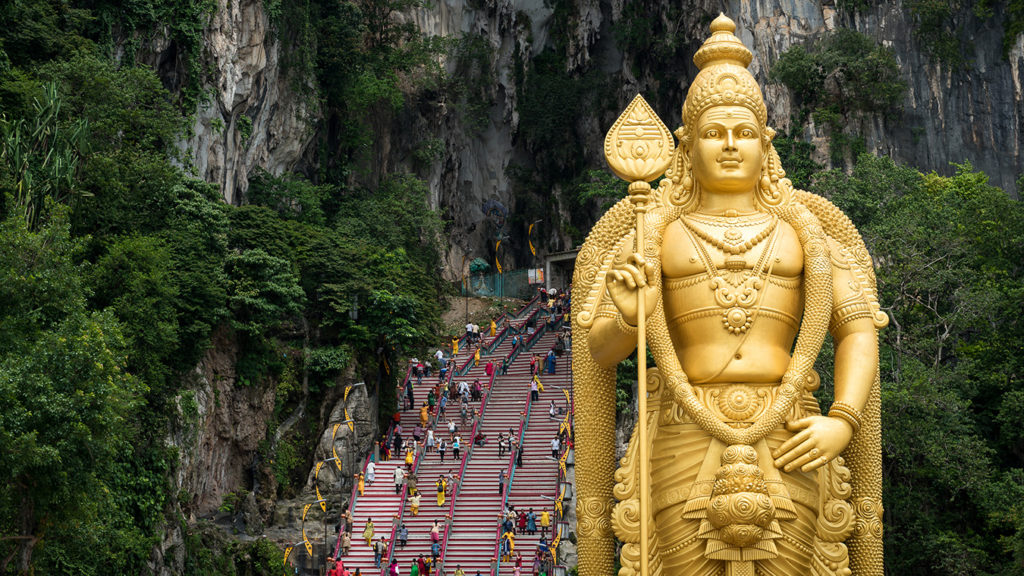
A 140-foot statue of Lord Murugan presides over the entrance to the Batu Caves. Pilgrims begin their steady ascent to the caves to worship.
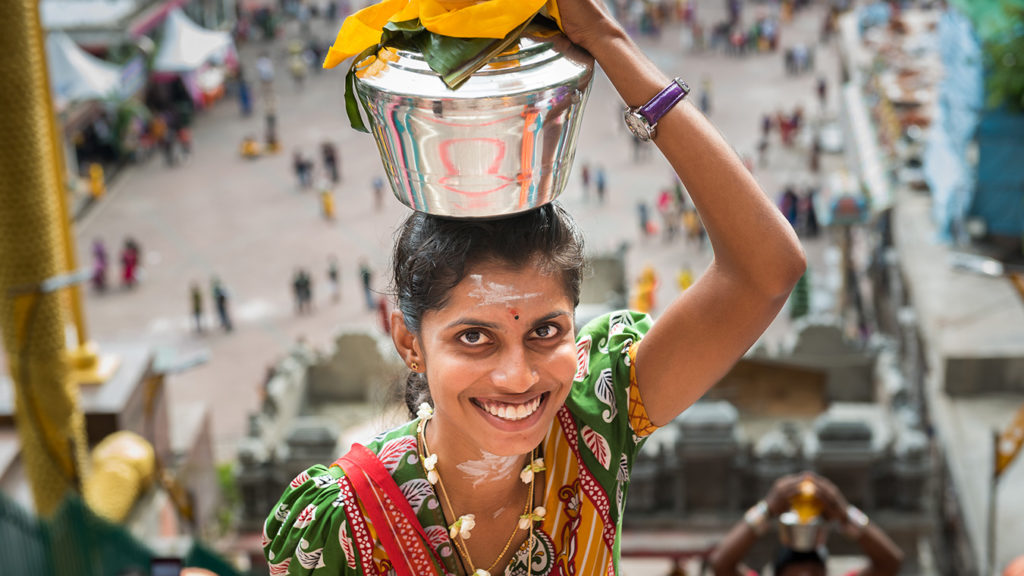
Devotees often carry a kavadi, or physical burden, on the pilgrimage. The practice symbolizes carrying one’s burdens, sufferings, and misfortune to be laid at the feet of Lord Murugan. For many, their kavadi is a jug of milk, which they cradle under their arm or balance on their head, to present as an offering once they arrive in the Batu Caves.
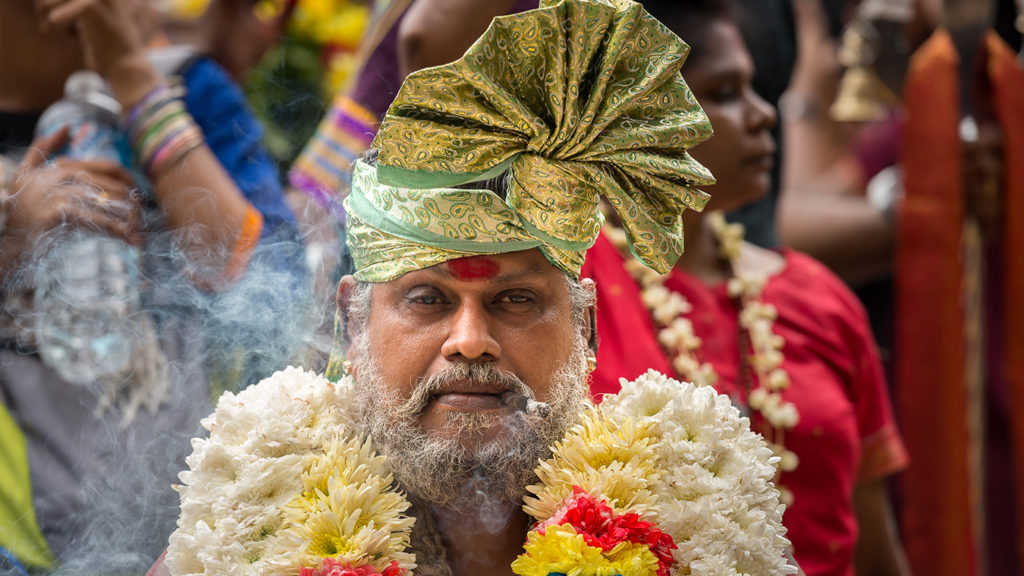
During the forty-eight days leading up to the festival, serious devotees cleanse themselves, remain sexually abstinent, pray, and fast. On the day of the pilgrimage, some shave their heads.
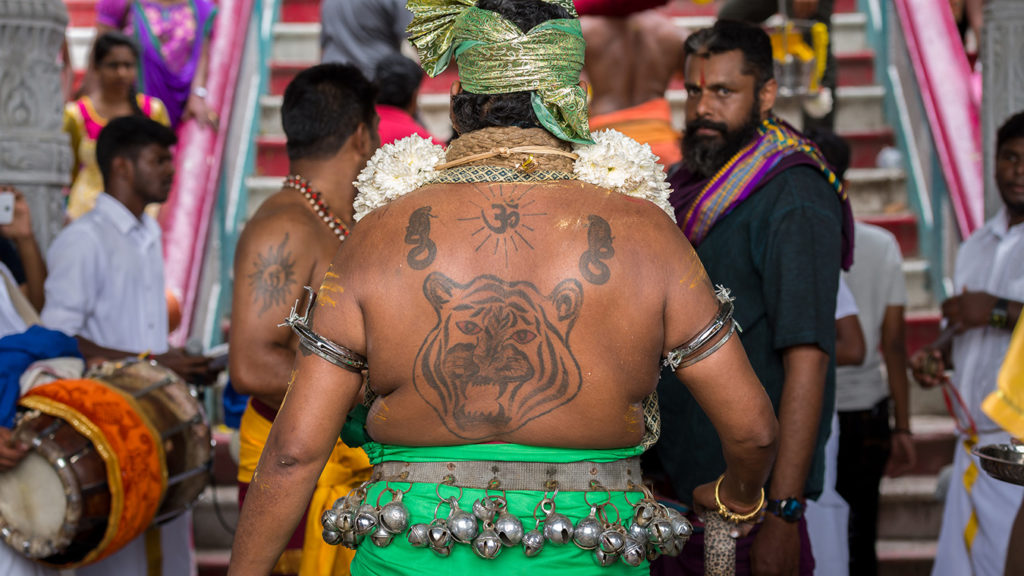
This Hindu man (above) wore metal cuffs on his upper arms that cut into his flesh. For the extremely devout, their kavadi involves multiple body piercings with metal pins in the chest, face, neck and arms, metal spikes inserted into and through their cheeks, and hooks inserted into their backs so they can, with reins, pull the chariots carrying idols of Lord Murugan. The worshippers will often go into a trance as the spears, rods, and pins are inserted into their bodies. Walking with these body piercings is, quite literally, war on the body.
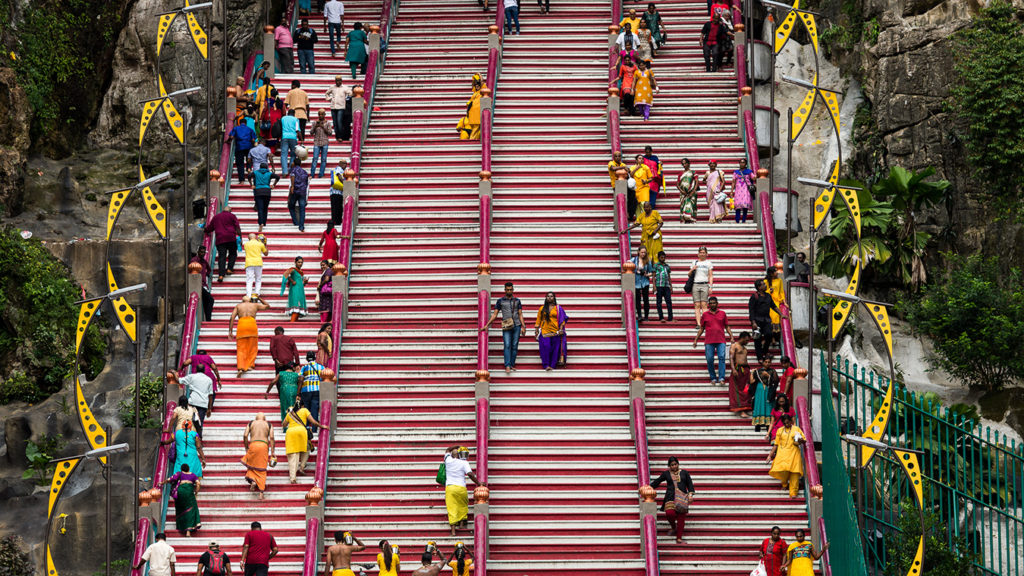
Climbing the 272 steps to the caves is a chore for worshipers. By the end of the pilgrimage, their bare feet boast trophies of callouses that testify to their dedication in making merit.
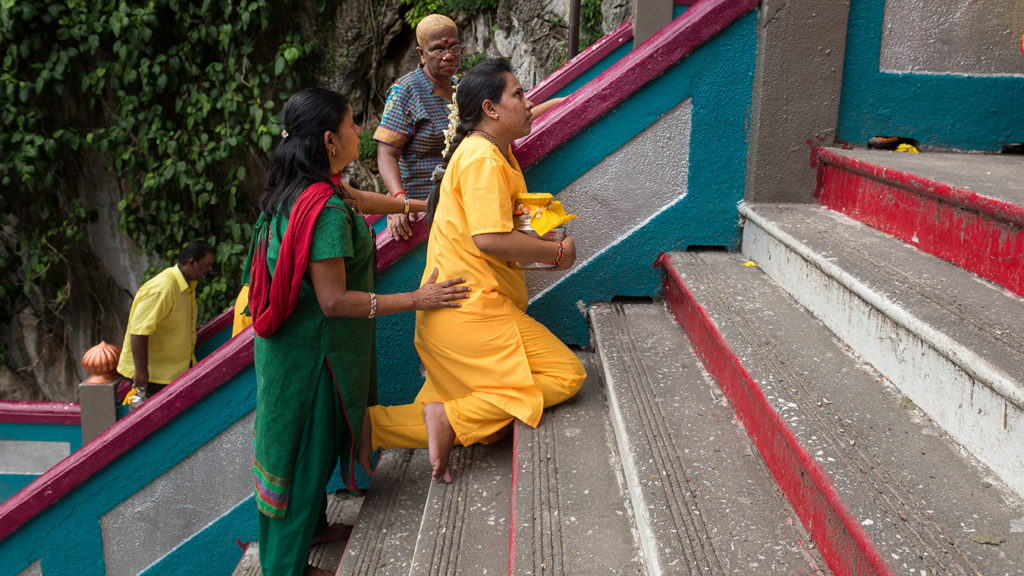
A woman climbed up to Batu Caves on her knees, carrying a jug of milk. She stopped a number of times, obviously in pain, but never gave up. She persevered because of her devotion to Lord Murugan.
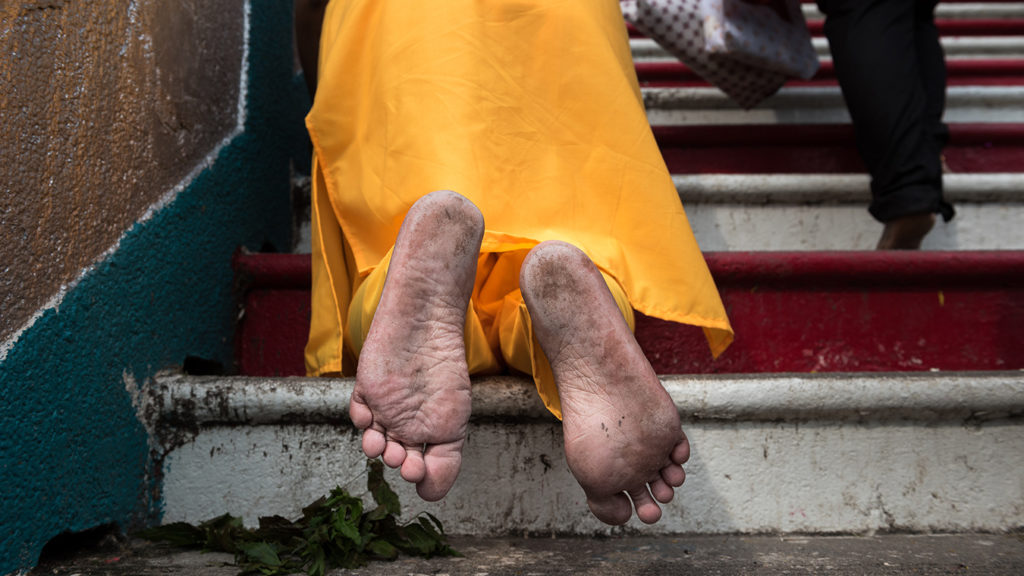
In the face of deep-rooted idolatry, how should Christians respond?
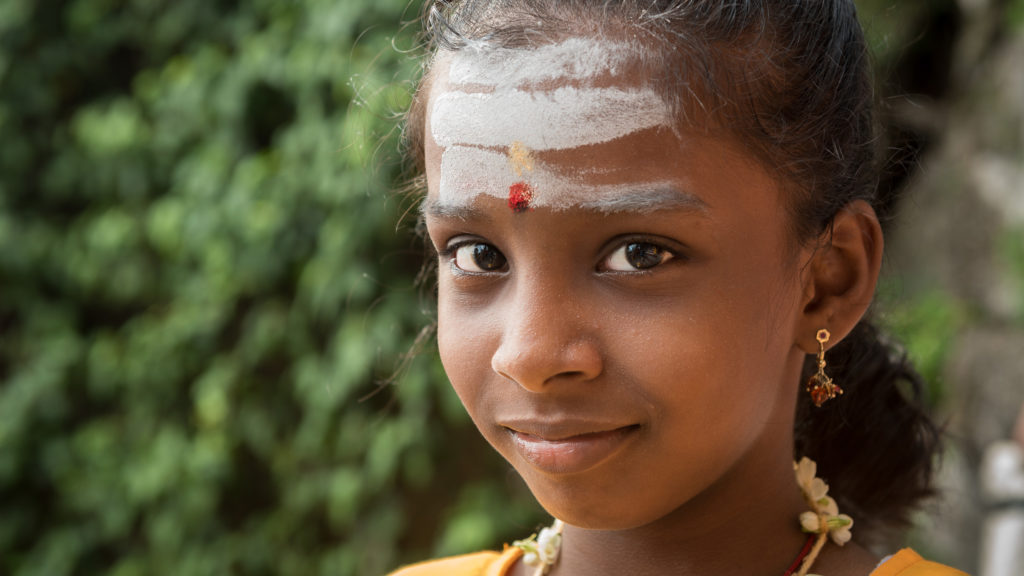
1. Pray for Hindus
Though it may seem a simple and cliché answer, prayer is a powerful response to the Thaipusam festival.
Serious participants in Thaipusam are pierced so they can carry a burden, not knowing Jesus was pierced for their transgressions. His body already took the punishment that brought peace to our souls. Pray Christians will take this freeing knowledge to Hindus of Kuala Lumpur.
Pray that instead of laying their burdens at the feet of an idol, Hindus would lay their burdens at the feet of Jesus.
Learn more about sharing the gospel with Hindus.
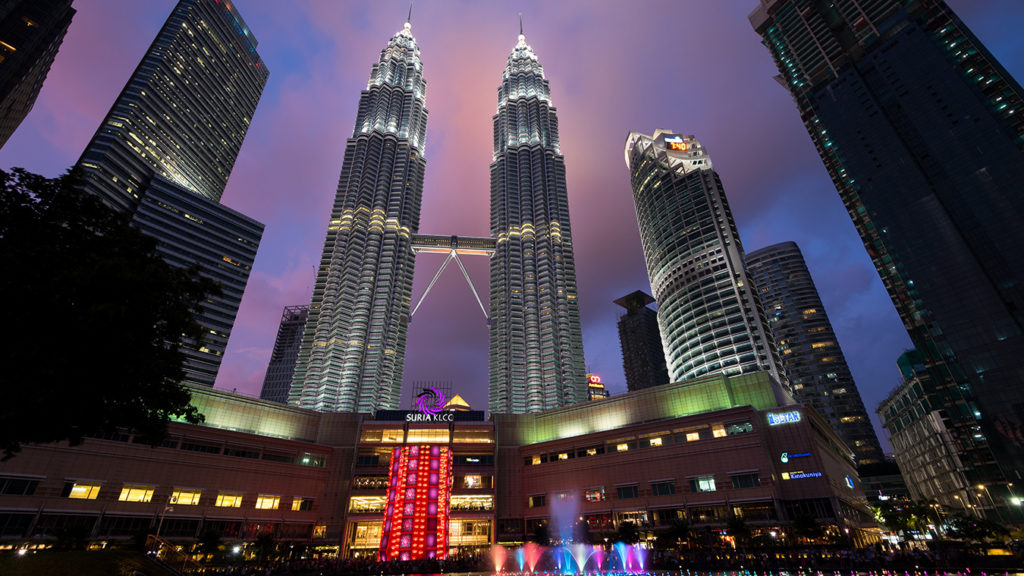
2. Learn more about Kuala Lumpur
Kuala Lumpur, the capital of Malaysia, is a vibrant, multicultural megacity with an East-meets-West paradigm. On first glance, it may appear that Western culture is the strongest influence in society. Mega malls and shopping districts boast big designer brands like Gucci, Hermès, and Burberry. However, underneath the appearance of modernity, ancient Eastern ideologies and traditions guide decisions and inspire the faith of local people.
The world’s major Eastern religions have a home in Kuala Lumpur. On a single street a mosque, a Buddhist temple, and a Hindu temple sit within walking distance. There are countless opportunities to minister in this city, whether as a business professional, student, IT specialist, or a Christian worker.
Learn more about Kuala Lumpur and opportunities to serve in the city.
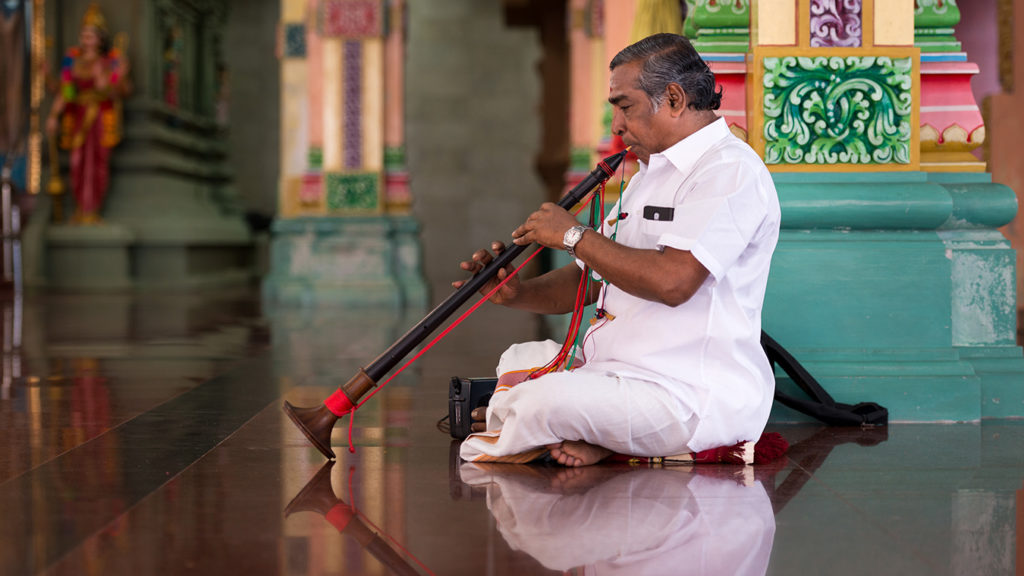
3. Get involved with IMB’s Global Cities Initiative
The Global Cities Initiative is an exciting new partnership between Southern Baptist churches and IMB to mobilize Christians to move abroad and utilize their marketplace skills and careers in global cities around the world. Professionals, students, and retirees contribute greatly to the work of making disciples as part of local church planting teams. Browse opportunities in Kuala Lumpur.
All photos above are by Luke In, a media specialist serving with the IMB based in Asia.
The story is by Caroline Anderson, a writer with IMB based in Southeast Asia. Her childhood consisted of two important ingredients: braving hot chili peppers and telling people about Jesus.

